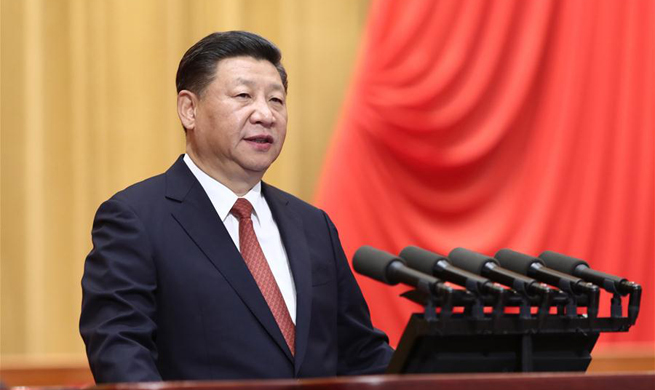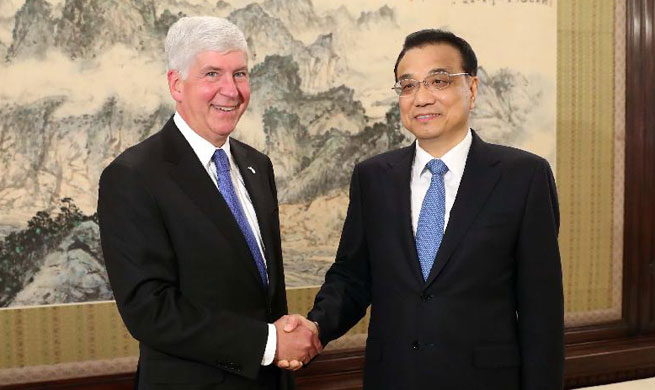SEOUL, Aug. 2 (Xinhua) -- South Korea decided Wednesday to raise taxes on super high-income earners and big-profit companies in a bid to finance welfare policies and reduce income inequality.
The revised tax law was announced at a meeting, chaired by Minister of Strategy and Finance Kim Dong-yeon who doubles as deputy prime minister for economic affairs. The revised tax code would be submitted to the parliament about a month later to implement it from next year.
The highest income tax rate would be raised from 40 percent to 42 percent to impose it on an annual income that surpasses 500 million won (445,000 U.S. dollars).
The tax rate for an annual income from 300 million won to 500 million won would be hiked from 38 percent to 40 percent.
For income of less than 300 million won, the current taxes would be imposed according to progressive taxation.
It was estimated that about 93,000 high-income earners would be subject to the increased tax rates.
The highest corporate tax rate would be lifted from 22 percent to 25 percent to impose it on an annual profit that exceeds 200 billion won (180 million U.S. dollars).
Subject to the highest corporate tax rate would be 129 big corporations, including Samsung Electronics and Hyundai Motor.
The corporate profit from 20 billion won to 200 billion won would be subject to a tax rate of 22 percent. The rate of 20 percent would be imposed on an annual profit from 0.2 billion won to 20 billion won.
For the corporate profit of less than 0.2 billion won per year, the current rate of 10 percent would be imposed.
The finance minister said the tax code revision was aimed to achieve the goal of income-based growth, advocated by President Moon Jae-in who took office on May 10.
"The focus was placed on job creation and income re-distribution to overcome low growth and income inequality, while emphasis was placed on expanded tax revenue for fiscal expenditure to play an active role," said the deputy prime minister for economic affairs.
On his campaign trail, President Moon said he would become a job-creating leader as a high jobless rate, especially among youths, led to the low birth rate and the delayed marriage that were forecast to lower potential growth rate further amid the rapidly aging population.
After being elected, Moon gave his first order of forming a committee to create decent jobs. Moon's income-based growth aimed to create a virtuous cycle in the way that more job creations and the reduced income gap between regular and irregular workers lead to improved distribution and eventually to economic growth.
Exports, which account for about half of the economy, kept a double-digit increase in recent months, but private consumption, the other growth engine of the Asia's No. 4 economy, remained lackluster amid the widening income gap and the high unemployment rate among college graduates.
To expand tax revenue and meet future demand for social security nets, the capital gains tax on stock sales by key shareholders would be raised from 20 percent to 25 percent toward capital gains of over 300 million won. Gains of less than 300 million won would be subject to a 20 percent rate.
Tax credits on voluntary payment of inheritance and gift taxes would be lowered from the current 7 percent to 5 percent in 2018 and to 3 percent in 2019.
To create decent jobs, the Moon government would provide tax credits of as large as 10 million won per employee for small companies, which hire the higher number of workers than the current one. For big corporations, 3 million won of tax deduction would be offered per employee.
Small companies, which turned irregular workers into regular ones, would receive tax credits of as large as 10 million won per employee. Small firms, which raised the wage of employees, would get additional tax deduction.

















